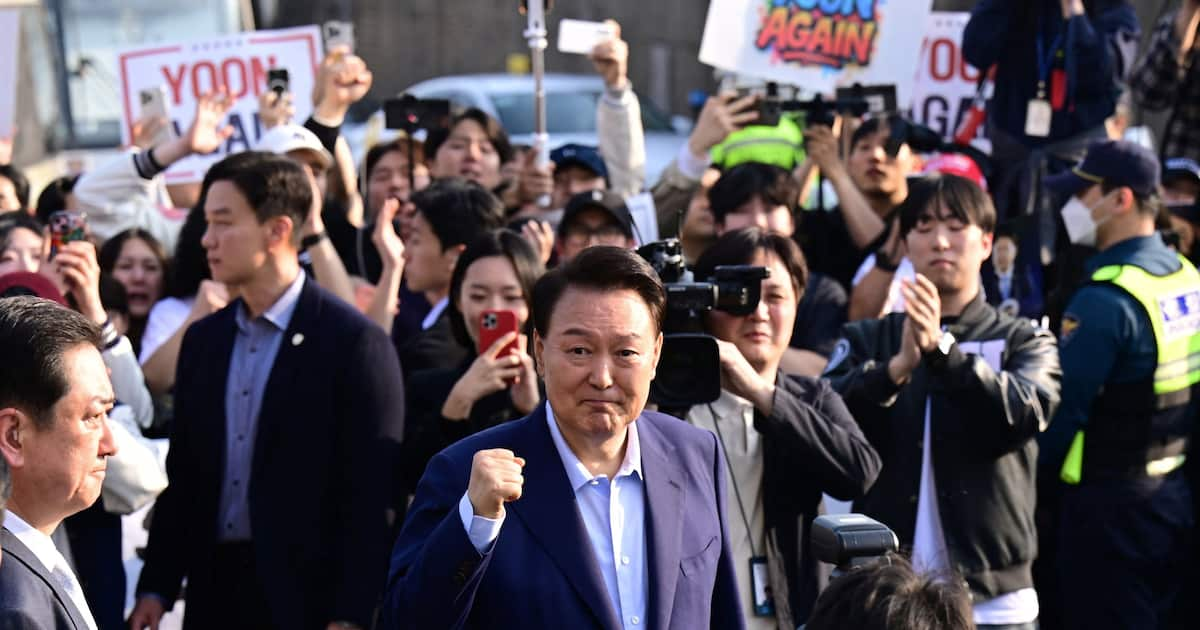Beyond Yoon: Redefining Korean Conservatism's Values
South Korea's conservative landscape is undergoing a significant shift, moving beyond the era of President Yoon Suk-yeol and grappling with a redefinition of its core values. The recent presidential election results and subsequent political maneuvering have sparked a crucial conversation about the future direction of the conservative movement. This article delves into the key challenges and emerging trends shaping this evolution.
The Yoon Presidency and its Legacy
Yoon Suk-yeol's presidency, while marked by certain policy successes, also faced considerable criticism. His administration's approach to North Korea, economic policies, and social issues sparked heated debate and, ultimately, contributed to a reassessment of traditional conservative principles within the party. This period highlighted the need for a more nuanced and inclusive approach to governance.
Key Criticisms of the Yoon Administration:
- Rigid Ideology: Critics argue that Yoon's administration prioritized a rigid ideological stance over pragmatic solutions, alienating potential allies and hindering progress on crucial issues.
- Communication Challenges: A perceived lack of effective communication and engagement with the public contributed to a decline in public support.
- Economic Policies: Certain economic policies were met with resistance, prompting concerns about their impact on various segments of the population.
Redefining Core Values: A New Conservatism?
The post-Yoon era presents an opportunity to redefine Korean conservatism. Emerging voices within the movement are advocating for a more inclusive and forward-looking approach. This involves:
Emphasis on Economic Inclusion:
- Addressing Income Inequality: A key focus is on addressing the widening income gap and ensuring economic opportunities for all segments of society. This requires moving beyond trickle-down economics and exploring policies that directly benefit the working class and marginalized communities.
- Sustainable Economic Growth: A shift towards sustainable and environmentally conscious economic policies is also gaining traction, reflecting a growing awareness of the long-term consequences of unchecked economic development.
Modernizing Social Attitudes:
- Youth Engagement: Reaching out to younger generations and addressing their concerns regarding employment, housing, and social issues is crucial for the future of the conservative movement.
- Diversity and Inclusion: A more inclusive approach that embraces diversity and actively combats discrimination is becoming increasingly important within the party.
Rethinking Foreign Policy:
- Regional Cooperation: A reevaluation of South Korea's foreign policy approach, potentially emphasizing greater regional cooperation and diplomatic engagement, is also being considered.
- North Korea Policy: Finding a more sustainable and effective approach to dealing with North Korea's nuclear program is another significant challenge.
The Path Forward: Challenges and Opportunities
The redefinition of Korean conservatism is a complex and ongoing process. The movement faces significant challenges, including internal divisions and the need to adapt to a rapidly changing social and political landscape. However, this also presents an opportunity to revitalize the conservative movement, attracting a broader base of support and offering a compelling vision for the future of South Korea.
Conclusion: A Necessary Evolution
The shift beyond Yoon Suk-yeol's presidency represents a critical juncture for Korean conservatism. The movement's ability to successfully adapt to the changing social and political landscape, embrace inclusivity, and address the economic and social anxieties of its citizens will determine its future relevance and success. The ongoing debate promises to reshape not just the political landscape of South Korea but also the very definition of Korean conservatism itself.
Keywords: Korean Conservatism, Yoon Suk-yeol, South Korea Politics, Economic Policy South Korea, Social Policy South Korea, Foreign Policy South Korea, North Korea, Political Reform South Korea, Conservative Party South Korea, Election South Korea
(Note: This article is for informational purposes only and does not endorse any specific political party or ideology. For further information, please consult reputable news sources and academic journals.)
